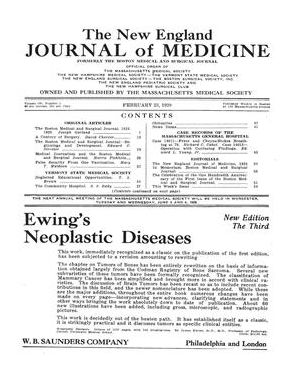The British Medical Journal (BMJ) is very 'heavy' on Conflict of Interest (COI) and has been somewhat critical of the NEJM approach - to say the least. See 13th June edition of BMJ.
To give you a flavour, one article in the BMJ has the title 'Backtracking on conflicts of interest: a very bad idea... A series of articles in the New England Journal of Medicine has questioned whether the conflict of interest movement has gone too far in its campaign to stop the drug industry influencing the medical profession. Here three former NEJM editors respond with dismay.'
My sympathies are almost entirely with the three former editors: Robert Steinbrook, Jerome Kassirer and Marcia Angell. I think bias, and resultant distortion of medical research is a massive problem.
So massive that it has become difficult to believe most of the research that is published. I am not alone in my concerns. Here is what Richard Horton (Editor of the Lancet), has to say on the matter:
'The case against science is straightforward: much of the scientific literature, perhaps half, may simply be untrue. Afflicted by studies with small sample sizes, tiny effects, invalid exploratory analyses, and flagrant conflicts of interest, together with an obsession for pursuing fashionable trends of dubious importance, science has taken a turn towards darkness.'A half of medical scientific research may be untrue... think on the implications of that for a moment. However, before you focus all your efforts on trying to expose financial conflicts of interest as the solution to all problems, you need to take several steps back.
Here are just two of the elephants in the room:
- Just because someone is getting paid, does not mean they are saying or doing anything that is biased, or distorted. So, by introducing punitive rules on payment from the industry, you could be punishing everyone who has ever received any money, when many of them have done nothing wrong.
- It is incredibly simple to set up structures that allow money to be paid to a 'charity', or a University Department, that can then be filtered down to an opinion leader who can then state, quite truthfully, that they receive no money from the industry. So, if you are going to look for conflicts, you are going to have a dig considerably deeper than looking for a direct transfer of money from pharmaceutical company to doctor. And that is tricky to enforce.
At present, COI is seen in very simple terms. A conflict of interest is that someone (usually an international expert in, say, psychiatry) is paid lots of money by a pharmaceutical company. They then say exactly what the pharmaceutical company has written down on a piece of paper for them to say e.g.
'This new product depressagon is completely safe, highly effective, has no side-effects, and I believe that depressagon should be use, first line, in anyone with depression. Thank you, where's my cheque.'The last three words are usually silent.
The International expert then sits on a guidelines committee for depression, and encourages all the other members of the panel to put depressagon on the list of first line drugs to be used in depression - and any other mental illnesses they can think of. At which point the Acme Pharmaceutical Company Inc. makes twenty billion dollars a year from depressagon. Which means that the one hundred million paid to the offshore account of said expert can be considered money well spent.
Of course, it is never as crude as this. Paying people money to say what you want them to say is considerably more subtle and nuanced. A raised eyebrow here, a small cough in the correct place there, an embarrassed silence round the table... the rules of playing the game are complex and never written down anywhere. In fact, if you have to ask how to take part, you don't get invited.
However, urbane, crude, or not, there is still an assumption that the currency of COI is money, specifically money that ends up the experts bank account (directly, or indirectly). This is nonsense. There are many other things on offer. The most important of which is...power.
If you can work with the industry to attract several hundred million to your University for research; if you can be the lead investigator in several major international studies, then you will gain prestige, influence and power. The University may create an entire department as your plaything. You can have fifty new staff members, you will be asked to sit on prestigious committees. You can advise Governments on health policy.
Money....money. Who needs that? To quote Kevin Spacey playing Francis Underwood in House of Cards:
'Such a waste of talent. He chooses money over power. In this town, a mistake nearly everyone makes. Money is the Mc-mansion in Sarasota that starts falling apart after 10 years. Power is the old stone building that stands for centuries. I cannot respect someone who doesn't see the difference.'Up to now, all discussions about Conflict of Interest have focused purely on payment in money. As if this is the only reason why someone may, ever, be influenced. When a medical expert states proudly they are not paid by pharmaceutical companies this may or may not be true. Tracking the flow of money into and out of Universities and medical charities is a complex old game.
However, no-one seems to have grasped a very important concept. You don't have to pay someone money to manipulate them. They can be rewarded, instead, with power and influence. Conflict of Interest is about far more than money, and we should stop pretending otherwise.




Wait! Tell me more! I'm listening(reading) Go on go on!Tell me more that you know. Boy there had better be a part 2 for this article. Because my interest has been piqued.